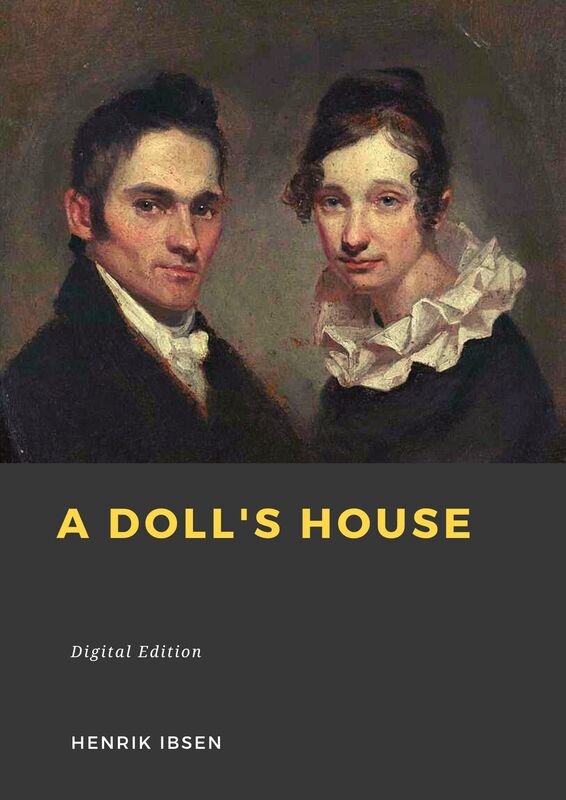
A Doll's House
Henrik Ibsen
A Doll's House
Henrik Ibsen
"A Doll's House" by Henrik Ibsen is a groundbreaking and thought-provoking masterpiece that challenges societal norms and explores the complex dynamics of marriage and identity. Set in 19th-century Norway, the play revolves around Nora Helmer, a seemingly content wife and mother, and her husband Torvald. As the plot unfolds, the audience is drawn into a web of secrets, lies, and personal revelations. Nora's journey from a docile, doll-like existence to a woman determined to assert her independence is at the heart of the play. Ibsen's writing skillfully delves into themes of gender roles, societal expectations, and the quest for self-discovery. The play's impact on theater and literature is profound, as it marks a pivotal moment in the emergence of modern drama. Ibsen's exploration of the inner lives of his characters and his critique of the traditional roles assigned to women continue to resonate with audiences today. "A Doll's House" is a gripping and emotionally charged work that invites reflection on issues of autonomy, identity, and the consequences of societal pressures. It challenges the audience to question the roles they play in their own lives and the authenticity of their relationships. Step into the world of "A Doll's House" and witness the power of Henrik Ibsen's storytelling as it continues to provoke thought and discussion on the timeless themes of freedom and individuality.
A propos de l'auteur
Henrik Ibsen (1828-1906) was a Norwegian playwright and one of the most significant figures in modern drama. Born in Skien, Norway, Ibsen's works, including "A Doll's House," "Hedda Gabler," and "Peer Gynt," have had a profound impact on the theater and literature. Ibsen's writing is characterized by its realistic portrayal of human psychology and societal issues. He explored themes such as women's rights, social hypocrisy, and the consequences of personal choices, challenging the conventions of his time. His plays often sparked controversy and debate but also contributed to significant social and cultural changes. Ibsen's legacy extends far beyond his lifetime, as his innovative approach to drama and storytelling laid the foundation for modern theater. His works continue to be performed worldwide, and he remains a celebrated playwright whose influence on literature and drama endures.